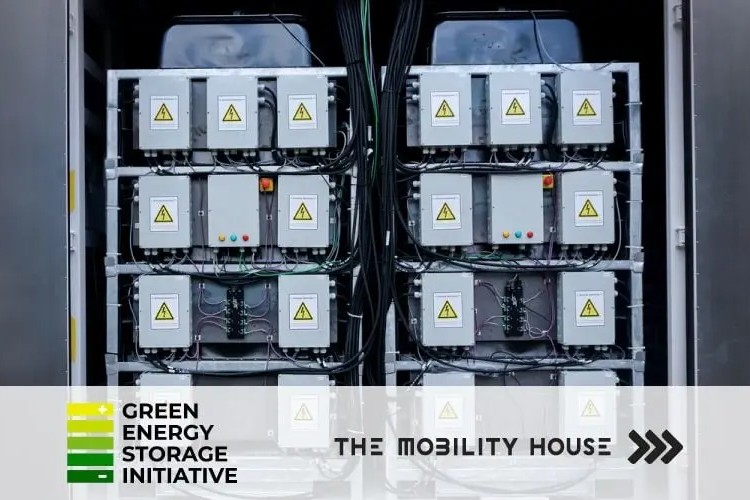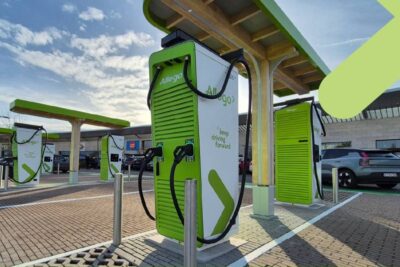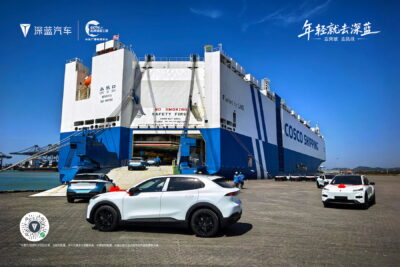The Mobility House and GESI plan large-scale storage from electric car batteries
The Mobility House (TMH) is known for being a pioneer in the marketing of storage facilities with new or discarded electric car batteries at the interface between the energy and transport transition. Just a few days ago, the Munich-based company announced that its storage facilities in Lünen and Elverlingsen, which have existed as part of a joint venture since 2016 and 2018 respectively, have once again been prequalified for the provision of primary control power. This renewed extension of use is a proof point for the stability of the 2nd Life approach.
In collaboration with Green Energy Storage Initiative SE (GESI Giga Batteries), The Mobility House now intends to systematically expand this area. The aim of the joint venture is therefore to build and market large-scale battery storage systems “to accelerate the next stage of the energy transition and reduce the costs of grid bottlenecks”, as stated in an accompanying press release. The duo plans to build up to 8 GW of storage capacity by 2035, preferably at grid-serving locations and former conventional power plants.
According to the partners, preparations for the first joint project are already well advanced with a large storage facility with a storage capacity of 250 MW in the planning stage. A further 500 MW are to be added in the second expansion stage. TMH did not reveal the location of this storage facility in its statement.
The joint venture will be responsible for the development, construction, operation and maintenance of the individual BESS sites. GESI will be responsible for financing and project coordination, while The Mobility House will contribute to the intelligent management and marketing of the batteries on the European electricity and balancing energy markets. The Munich-based company has been active in this still-young business segment for some time: according to TMH, it currently trades over 4,500 electric car batteries with a capacity of more than 100 MW on the European power and energy markets.
“Our collaboration with GESI is a further step towards our vision of an emission-free future. With the planned gigawatt-scale storage facilities, we are making a significant contribution to the energy transition,” says Thomas Raffeiner, founder and CEO of The Mobility House since the spring. “In this way, we are accelerating the development towards a stable and renewable energy supply of tomorrow. Our expertise complements each other perfectly here: industry know-how and financial strength meet many years of experience in the marketing of battery storage systems.”
GESI CEO Walter Raizner adds: “We are very much looking forward to working together. The Mobility House has a great deal of expertise when it comes to integrating storage systems into the grid and marketing electricity. This makes the company the ideal partner for our ambitious large-scale storage projects, with which we want to accelerate the energy transition and save millions of tons of CO2.”
The project developer was only founded in December 2023 and is based in the Bavarian area of Pullach im Isartal in Germany. According to its website at the time, GESI is planning “ten projects with a total capacity of up to 20-gigawatt hours in the medium term to ensure a continuous supply of green electricity – even during periods of low wind and sunshine
Reporting by Cora Werwitzke, Germany





0 Comments